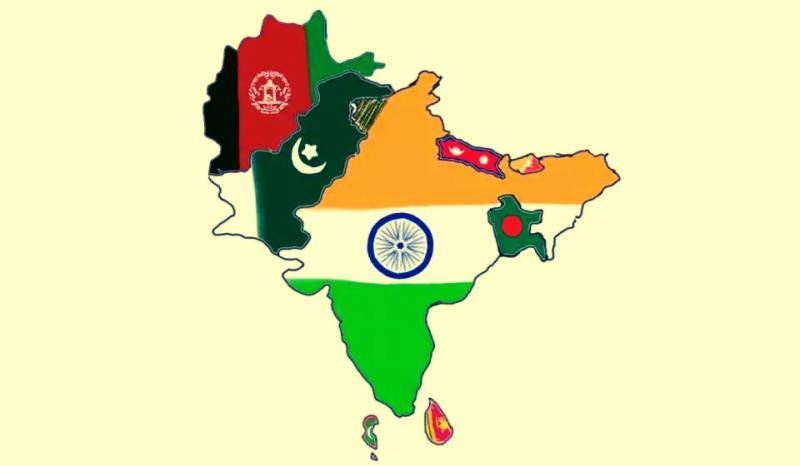
The longstanding rivalry between India and Pakistan has significantly shaped the geopolitics of South Asia. Forged by their tumultuous history of partition, conflict, and competition, these two nations have maintained an uneasy coexistence for decades. However, the power imbalance between them has grown substantially in recent years, particularly in terms of military and economic strength, with India clearly surpassing Pakistan.
Grappling with internal challenges, Pakistan has found it increasingly difficult to keep pace with India's rise. This power imbalance fundamentally shapes the dynamics of their relationship, placing Pakistan in a defensive posture despite the substantial financial, social, and diplomatic costs of its strategies. The protracted conflicts and hostility have saddled Pakistan with political stagnation, economic hardship, and military dominance.
This widening disparity forces Pakistan to confront a harsh reality. As India has emerged as a major regional and global player, its economic growth, military modernisation, and strategic alliances have contributed to a stark asymmetry between the two countries. This has compelled Pakistan to adopt a range of costly strategies to maintain the balance of power, including military buildup, nuclear deterrence, diplomatic maneuvers, economic partnerships, and the use of proxy forces.
To counterbalance India’s influence, Pakistan has pursued diplomatic solutions and established external alliances, particularly with the United States, China, and various Middle Eastern countries. However, this balancing act often leads to diplomatic tensions.
Pakistan’s deepening ties with China, especially through the China-Pakistan Economic Corridor (CPEC), have resulted in increasing dependency on Beijing. While China’s support offers economic benefits and military cooperation, it also risks alienating other global powers.
Additionally, some segments of Pakistan’s population view the country’s foreign policy as overly reliant on external powers, potentially compromising national sovereignty. This domestic challenge adds complexity to Pakistan’s delicate geopolitical maneuvering.
By tapping into vast markets and forging economic partnerships with India, Pakistan could not only boost its prosperity but also contribute to improved regional stability in South Asia
Overall, Pakistan must carefully navigate its relationships with major powers to maintain influence while addressing concerns about national autonomy and the risk of becoming caught in the middle of competing interests.
Pakistan's costly strategy of engaging in proxy conflicts, particularly its alleged support for insurgent groups in Kashmir, has led to international isolation and condemnation. This strategy has incurred significant diplomatic costs, with Western nations, especially the U.S., pressuring Pakistan to curb these activities as part of broader counterterrorism efforts. Proxy warfare has destabilised regions and created long-term security challenges for Pakistan. The rise of extremist groups and the spread of militancy within Pakistan can partly be attributed to the unintended consequences of its involvement in these proxy conflicts.
The humanitarian impact of these proxy wars has resulted in civilian casualties and displacement, both within Pakistan and in neighboring countries like India and Afghanistan. This situation has lasting effects on social stability and public perceptions of military interventions.
As Pakistan faces the reality of India's regional dominance, it may be time to reconsider its traditional approaches to balancing power, which are becoming increasingly ineffective. Attempting to match India's military strength or political influence may only exacerbate Pakistan's vulnerabilities, creating an unsustainable cycle of competition. Instead, Pakistan should explore alternative strategies that go beyond conventional power balancing, such as embracing economic collaboration with India. If military competition is no longer a viable path for Pakistan, exploring economic collaboration with India could present a promising alternative. While political and territorial disputes continue to pose challenges, the economic potential of improved relations between the two nations should not be overlooked.
South Asia is rich in economic opportunities, but the longstanding rivalry between India and Pakistan has stifled much-needed regional cooperation. Political tensions have hindered trade, investment, and shared infrastructure projects for years. However, as India continues to grow as a global economic power, Pakistan has an opportunity to participate in and benefit from this economic expansion by embracing India as a key trading partner.
By tapping into vast markets and forging economic partnerships with India, Pakistan could not only boost its prosperity but also contribute to improved regional stability in South Asia. This strategic shift could greatly benefit from encouragement and support from major global powers, including the United States, China, and the European Union, who have a vested interest in maintaining stability in the region.
By backing initiatives aimed at increasing economic cooperation between India and Pakistan, these nations could play a crucial role in reducing tensions and promoting lasting peace. A cooperative economic relationship between the two countries would enhance regional security and make armed confrontations less likely.
In this changing global landscape, Pakistan has a prime opportunity to redefine its role and pursue a new path focused on economic engagement with India. Establishing a framework for peace and mutual prosperity could lay the foundation for a more stable and prosperous South Asia, benefiting not only the two countries but the entire region.
Embracing flexibility, pragmatism, and a focus on economic cooperation may be key to ensuring long-term peace and prosperity in South Asia. By shifting the dynamic from rivalry to collaboration, Pakistan could unlock a wealth of new opportunities for itself and its neighbors, ultimately fostering a more harmonious and integrated region.

